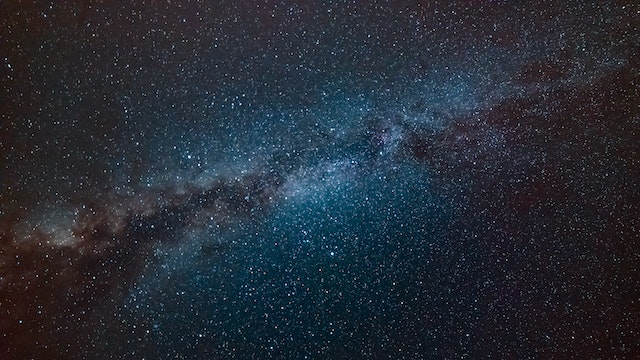
What will happen at the end of the universe? There will either be a Big Crunch, a Big Bounce, a Big Rip, or a Big Freeze.
The universe is thought to be 13.7 billion years old. This has been calculated in two ways. The first way is to find the oldest stars in the universe. The universe must be older than the oldest things in it and objects like white dwarves decay at an observable rate. This allows astronomers to hazard a guess at the oldest things in the universe. The second way is by measuring the expansion of the universe and extrapolating back. If you had a superpower and could slow down a bomb explosion seconds after it went off, you could watch the direction the pieces were flying in. With some knowledge of physics, you could work out how long since the explosion happened and where it happened. This is the same with the universe. Not everyone agrees with the calculation of 13.7 billion years. A recent study has shown that the universe might be over 26 billion years old. The person behind this study claims that some of the early galaxies were too advanced to have been formed in hundreds of millions of years and would need billions of years.
However you look at it, the universe had a beginning. It was a hot ball of matter that wasn’t governed by any physics that we know of. It exploded, and here we are. So, what is going to happen to it? There are many possible things that could happen, not least of which being that we wake up in a matrix. Here are the four most likely.
The first possibility is a Big Crunch. The universe is expanding, but the rate at which it is expanding appears to have slowed down. By saying that, it is impossible for us to know what the entire universe is doing, and all ideas are only theories. Also, the expansion rate has slowed, but the galaxy is still expanding because points are getting farther away from each other. The Big Crunch theory is that the expansion of the universe will expand to a certain point and then the force of gravity will exceed the explosive force from the Big Bang. Once this happens, the universe will start to collapse back in on itself. The cosmic background radiation will heat up until it is hotter than the stars and the stars would become so hot that they evaporate. The compression will continue until the universe is crushed down to a tiny point of infinite density, mass, and energy.
The second possibility is a Big Bounce. This connects to the Big Crunch idea. Once the universe has collapsed down on itself until it is a point of energy, it will then explode out again in another Big Bang. The theory is that the process of Big Bang and Big Crunch continues infinitely. Most experts don’t think the Big Crunch or the Big Bounce are very likely because they say the expansion of the universe is accelerating.
The Big Rip is an interesting scenario. Our universe is made up of approximately 68% dark energy. That dark energy is thought to be a constant, but there are some that say the amount of dark energy is increasing. In the Big Rip, the amount of dark energy keeps increasing until it overcomes all of the forces that hold the matter in the universe together and tears everything apart, even the atoms. It is more an unraveling than a rip. The dark energy becomes stronger than the force of gravity, and stars cannot keep themselves together. Even the electrons orbiting atoms are pulled apart, and even the fabric of space time. This theory is also unlikely because most experts think the amount of dark energy is constant, but no one knows for sure.
The Big Freeze is the most likely end to the universe. Most astronomers think that the expansion of our universe is speeding up and they think that dark energy is the reason for this. They believe that the expansion will continue until other bodies and galaxies are so far away that we cannot see them. There would be no stars. And no new galaxies would form because all of the matter would be tied up in white dwarves and black holes. And the second law of thermodynamics would come into play. The second law states that entropy increases in a system until the energy is balanced. If you put a cup of hot coffee on a table, it will cool until it is at the same temperature of the room and if you put a cup of cold coffee on the table, it will warm up until it is the same temperature as the room. In the universe, now, all of the energy is clumped together in stars and galaxies. As the universe expands and cools down, the hot areas will cool down and the cool areas will warm up until the energy is completely evenly balanced across the universe. When that has happened, nothing else can happen in the universe and we have reached the Big Freeze. This is the end that most scientists think will happen, but it is probably a googol of years from now. And this is what I learned today.
Photo by Hristo Fidanov: https://www.pexels.com/photo/milky-way-galaxy-during-nighttime-1252890/
Sources
https://map.gsfc.nasa.gov/universe/uni_age.html
https://en.wikipedia.org/wiki/Age_of_the_universe
https://en.wikipedia.org/wiki/Big_Crunch
https://newatlas.com/physics/end-universe-destroyed-big-freeze-rip-crunch-slurp/
https://www.space.com/13393-universe-endless-void-big-crunch.html
https://bigthink.com/starts-with-a-bang/universe-expansion-not-accelerating/
https://en.wikipedia.org/wiki/Big_Rip
https://science.nasa.gov/astrophysics/focus-areas/what-is-dark-energy
https://bigthink.com/hard-science/how-the-big-rip-could-end-the-world/
https://www.americanscientist.org/article/tearing-apart-the-universe
